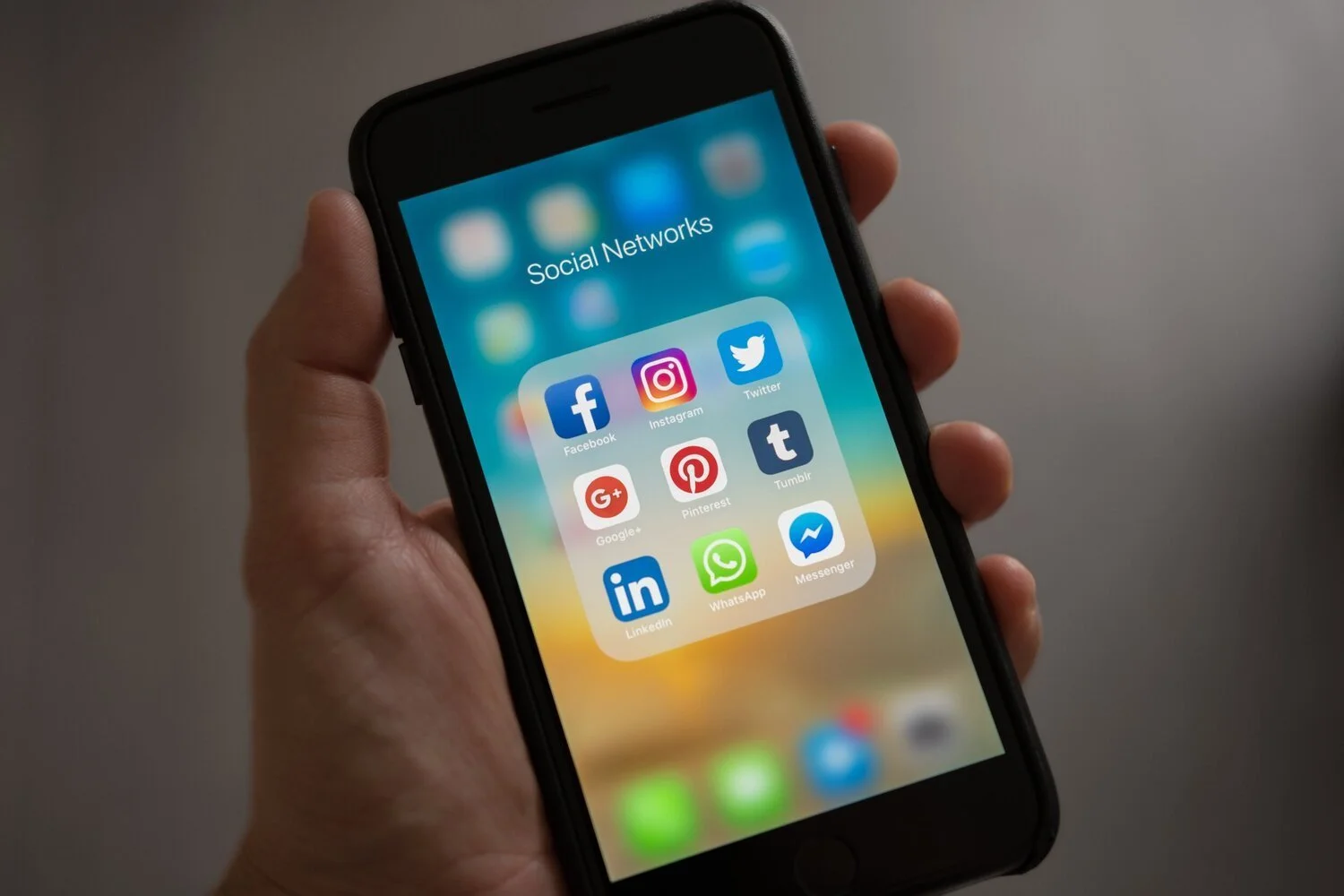Social Media: To Post or Not to Post?
Takeaways from Netflix’s The Social Dilemma
Blog post written by Stefanie Rico, Registered Social Worker, Straight Up Health
Every so often, a documentary comes along that forces us to question a social reality that we have come to take for granted. Netflix’s Social Dilemma is one such documentary. Released just a few weeks ago, the documentary explores the detrimental impacts of social media with tech experts “raising the alarm on their own creations”. The documentary’s fundamental premise is that social media sites are designed specifically to manipulate the user’s thoughts and behaviours to advance the profit motive of ad buyers. It contends that social media poses several dangers to society, including increased rates of depression and anxiety as well as a loss of intra- and interpersonal connection. Some of the tech experts the documentary features call for the complete abandonment of social media use. However, this may not be a realistic solution for many of us--not only because we live in an age of physical distancing but also because, for some, social networking satisfies an innate need for connection that cannot otherwise be met. This is true for people whose lack of mobility limits their access to physical connections as well as for those who feel unsafe in their immediate communities. Nevertheless, although many of us cannot heed the documentary’s call to action, it still provides us with a valuable opportunity to check-in with ourselves and think critically about our social media use.
In the paragraphs that follow, we discuss some basic strategies for engaging in social networks without compromising our mental and emotional health.
Reconnecting with Ourselves:
One of the key themes of the documentary is the way in which social media manipulates our likes and dislikes to advance external profit motives. This can have serious ramifications, particularly for young people who have not experienced a world without social media. Spending an exorbitant amount of time on social media can limit your ability to explore who you are and what you like outside of what the algorithm presents. For this reason, it is important to develop an intentional practice that allows you to tune in with yourself and your inner wisdom. This can look like doing mindfulness exercises such as meditation or breathwork. It can also look like engaging in fun hobbies and spending time in nature. Another way we can reconnect with ourselves is hanging out with people who love us and make us feel good.
Reconnecting with Others:
Another key point the documentary makes is how social networks can ironically make us feel more disconnected from others. Human beings have an innate need for love, connection, and belonging and that is in part what draws us to social networks. However, while social media provides us with an invaluable opportunity to connect with people around the world, it is in many ways only an approximation of real-life connections. Connection necessitates vulnerability, which is difficult to experience when we are preoccupied with curating and presenting the best version of ourselves. Moreover, communication and non-verbal communication in particular are key to building intimacy. Body language that conveys warmth, genuineness, and empathy is integral to fostering the safety that allows us to be vulnerable with others and build deeper connections. This is more difficult, though not impossible, to do online. We can better approximate physical interactions on social media by opting to interact through audio or video chat rather than more passive forms of virtual communication such as messaging, liking or sharing. Better yet, we can work to (re)establish real-life connections in our immediate communities. This can include spending time with our loved ones or engaging in neighborhood activities such as garage sales, community gardens, outdoor sports, and book and plant swaps.
Mindfully Engaging with Social Media:
Despite its dangers, there are many ways in which social media enriches our lives. Engaging in social media in a mindful and critical manner allows us to enjoy it while mitigating its harmful effects. One of the most important things to remember is the fact that you do not own the material you put on your social networks. That information is there to stay, for future employers and college admissions staff to see. It is important to ask yourself if putting up a social media post will be harmful to your online reputation in the long term. Another thing to keep in mind is the importance of checking-in with yourself regularly about your social media engagement. If you find that consuming certain content leaves you feeling sad, anxious, or overwhelmed, make a mental note and try to curate your feeds accordingly. Similarly, if you notice that you are comparing yourself to others on social media, remind yourself that what people post is often a carefully crafted persona rather than a realistic portrait of themselves. Remember that these feelings and behaviours can also be a sign that you need to take some time away from your social networks. Finally, mindfully and critically engaging in social media means acknowledging that it does indeed pose many of the dangers that the documentary outlines. This means that it is important to limit the amount of time that you are on social media platforms. Many social media apps allow you to set a daily engagement limit. Determining that limit is up to you as only you know yourself best.
Additional resources:
The Social Dilemma (trailer): https://www.youtube.com/watch?v=uaaC57tcci0
Common Sense Media: https://www.commonsensemedia.org
Common Sense Education: https://www.commonsense.org/education/digital-citizenship

